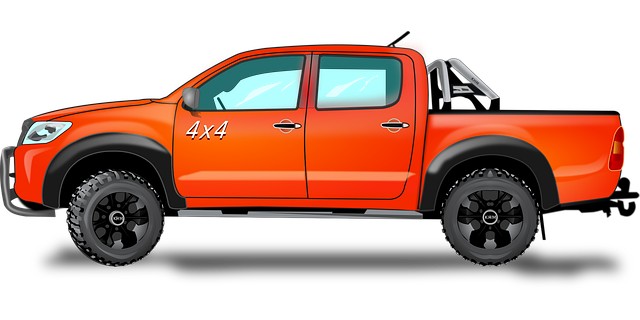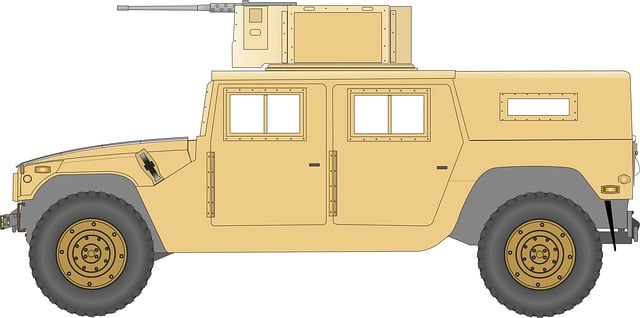Tow hooks, crucial components in fleet trucks' maintenance (as detailed in a fleet Truck repair manual Brownsville), are essential for safe heavy towing. Proper selection based on vehicle weight and capacity (classes I-III) is key. Regular installation, inspection, and maintenance, per the manual or vehicle instructions, ensure safety and prevent failures. Issues like broken hooks due to overloading can be avoided through proactive care. Incorporate cleaning, protective coatings, and secure storage for maximum hook lifespan. The use of tow hooks in Brownsville's trucking industry has led to enhanced safety and efficiency, streamlining operations during peak seasons.
“In the world of fleet truck maintenance, understanding essential components like tow hooks is key for efficient operations in Brownsville. This comprehensive guide serves as your go-to fleet truck repair manual, exploring the intricacies of tow hooks and their impact on vehicle towing capabilities. From selecting the right hook types tailored to Brownsville’s unique needs to installation best practices and troubleshooting common issues, this article equips local fleet owners with valuable insights. Discover case studies highlighting successful tow hook implementations, ensuring your trucks are ready for any road challenge.”
- Understanding Tow Hooks: A Essential Component for Fleet Truck Repair
- Types of Tow Hooks: Choosing the Right Fit for Your Brownsville Fleet
- Installation and Safety Guidelines: Ensuring Efficient Tow Hook Operation
- Common Tow Hook Issues and Troubleshooting Tips for Fleet Owners in Brownsville
- Maintenance Best Practices: Extending the Lifespan of Your Tow Hooks
- Case Studies: Successful Tow Hook Implementation in Local Brownsville Truck Fleets
Understanding Tow Hooks: A Essential Component for Fleet Truck Repair

Tow hooks are an integral part of any fleet truck’s maintenance and repair process, especially in a fleet truck repair manual Brownsville. They serve as robust connection points, enabling the safe towing of vehicles or heavy equipment. Understanding their function is crucial for efficient fleet management and ensuring the safety of both vehicles and operators.
In a fleet truck repair manual Brownsville, tow hooks are typically designed to withstand immense force and should be regularly inspected and maintained. Proper installation and secure fastening are key to preventing accidents and damage during towing operations. With the right tools and knowledge, mechanics can easily identify different types of tow hooks suitable for various vehicle models, ensuring optimal performance and peace of mind on the road.
Types of Tow Hooks: Choosing the Right Fit for Your Brownsville Fleet

When it comes to towing, choosing the right tow hooks for your fleet is paramount for safety and efficiency. There are several types available, each designed for specific applications. For instance, fleet truck repair manuals often recommend class I, II, and III hooks based on vehicle weight and towing capacity. Class I hooks are ideal for lighter vehicles, while Class III, with their sturdy design, are suitable for heavier duty.
In Brownsville, with its diverse fleet needs, selecting the appropriate tow hook becomes crucial. Consider factors like vehicle type, towing frequency, and the kinds of loads you regularly transport. A fleet truck repair manual specific to your region can guide you in making an informed decision. By matching the right tow hook to your fleet, you ensure smooth operations, reduce wear and tear on vehicles, and enhance overall safety on the road.
Installation and Safety Guidelines: Ensuring Efficient Tow Hook Operation

When installing tow hooks, whether for a fleet of trucks or a personal vehicle, it’s crucial to follow a comprehensive set of guidelines. This process requires meticulous attention to detail to ensure safe and efficient operation. Start by consulting your fleet truck repair manual or vehicle-specific instructions to understand the recommended installation procedures. Every make and model may have unique requirements, so adhering to these guidelines is essential for optimal performance and safety.
Safety should never be compromised during this critical step. Ensure proper alignment of the tow hook with the designated mounting points, using only approved hardware and tools provided by the manufacturer. Properly secure the hook to prevent any movement or shifting during towing operations, as this could lead to catastrophic failures. Regular inspection is equally vital; check for wear and tear, especially after frequent use, to guarantee the integrity of your tow hooks and overall vehicle safety when hitched to another vehicle.
Common Tow Hook Issues and Troubleshooting Tips for Fleet Owners in Brownsville

Brownsville’s fleet owners often face common tow hook issues, which can stall operations and cause safety concerns. One frequent problem is broken or damaged tow hooks due to overloading or incorrect use. This can be particularly problematic for larger vehicles, leading to costly fleet Truck repair manual Brownsville services. To prevent this, regular inspection and maintenance are key; checking hooks for wear and ensuring they’re fitted correctly according to the vehicle’s specifications.
Troubleshooting tips include cross-referencing hook load ratings with the vehicle’s capacity and using specialized tools for secure attachment. In case of a breakdown, quick thinking and access to a fleet mechanic in Brownsville can resolve issues promptly. A well-maintained tow hook system not only keeps your vehicles roadworthy but also ensures smooth towing operations, enhancing overall fleet efficiency.
Maintenance Best Practices: Extending the Lifespan of Your Tow Hooks

To extend the lifespan of your tow hooks, regular maintenance is key. Start by inspecting them thoroughly for any signs of damage, corrosion, or wear and tear. This can be done as part of your fleet truck repair manual Brownsville routine checks. Addressing issues early prevents minor problems from escalating into costly repairs.
Follow a strict cleaning schedule to remove dirt, grime, and salt buildup, which can accelerate corrosion. Consider applying a protective coating recommended by the manufacturer to safeguard against environmental elements. Proper storage is another crucial practice; keep your tow hooks in a dry, secure area to prevent damage from exposure.
Case Studies: Successful Tow Hook Implementation in Local Brownsville Truck Fleets

Brownsville, a bustling hub for truck fleets in Texas, serves as an excellent case study for understanding the successful implementation of tow hooks. Local trucking companies have embraced this innovation, improving safety and efficiency in their daily operations. By integrating tow hooks into their fleet truck repair manuals, these businesses have witnessed a significant reduction in loading and unloading times, thereby increasing productivity.
The practical application of tow hooks has been a game-changer for Brownsville’s trucking industry. Fleet managers report that the use of these devices has streamlined their processes, allowing for faster movement of goods. This efficiency is particularly notable during peak seasons, where timely deliveries are crucial. Moreover, the safety benefits cannot be overlooked; tow hooks have minimized the risk of cargo shifting during transit, leading to fewer accidents and damage claims.
Tow hooks, an often overlooked yet critical component in fleet truck repair manuals for Brownsville areas, play a pivotal role in ensuring safe and efficient towing operations. By understanding different tow hook types, adhering to safety guidelines, and implementing effective maintenance practices, local fleet owners can maximize the lifespan of these essential tools. The case studies presented highlight successful tow hook implementations, offering valuable insights into enhancing fleet productivity while minimizing downtime. For comprehensive guidance tailored to Brownsville’s unique needs, a fleet truck repair manual becomes an invaluable resource for maintaining robust towing capabilities.



